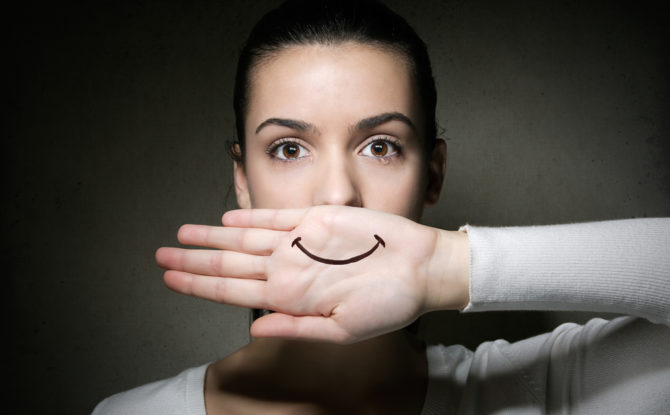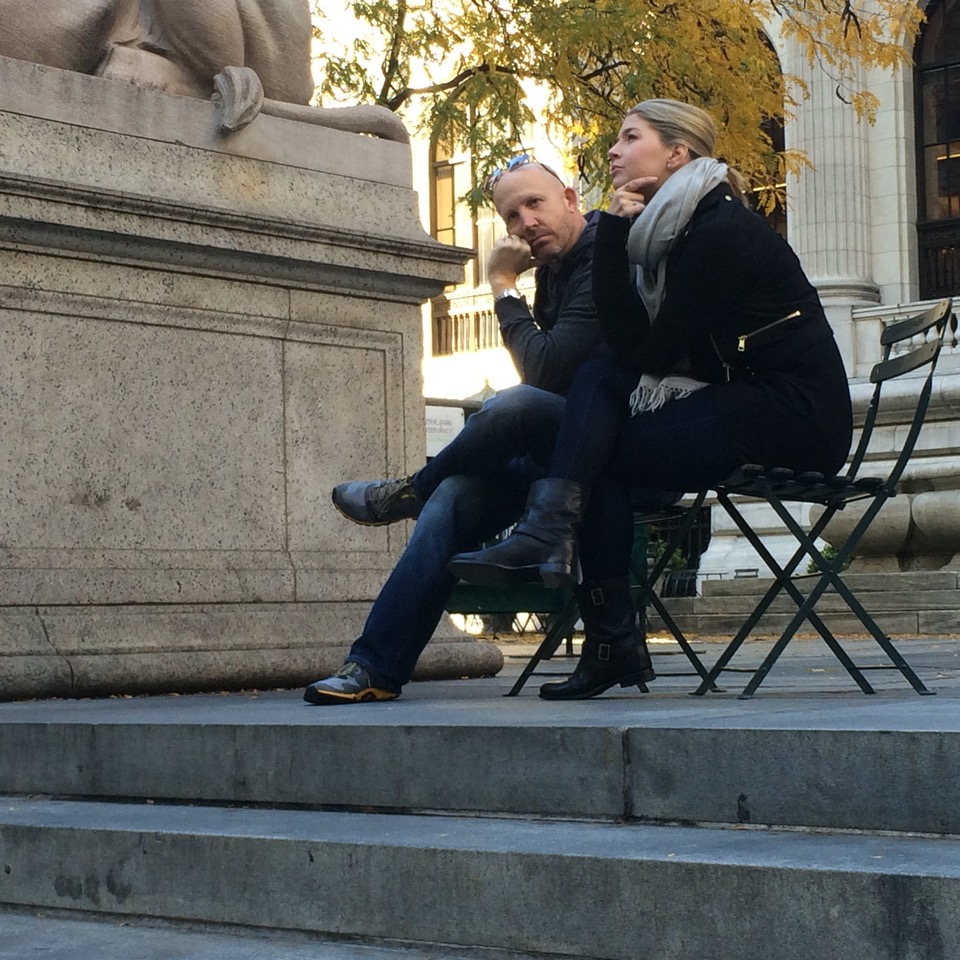“Hey, girl. Gimme a smile.”
If you’ve ever been hollered at on the street (and if you’re a woman, it’s probably not really if, but when), you know how insulting it can feel when some stranger demands you flash a smile and fake happiness.
The real problem? It’s not just sexist strangers on the street.
We attempt to force happiness on ourselves and others all. the. time. Even when we mean well, we often discourage sadness in our friends and loved ones. “Don’t feel bad,” we say. “It’ll all be okay.” “It could be worse.” Or the ultimate punch in the gut: “Stop feeling sorry for yourself.”
Happiness is supposed to be a private emotion. But because of a focus on personal development in recent years, happiness has morphed from an internal journey to an external measure of how evolved and successful we are. We’ve somehow come to believe that if someone isn’t happy, there must be something wrong with them. They aren’t trying hard enough to find happiness, or they need to control their stress, or they’re choosing to be sad.
When we think like this, we turn happiness into a weapon. If people don’t meet our definition of happy, society begins to think of them as “weak.”
Why You Beat Yourself Up About Happiness
Weaponized happiness is a new epidemic, where everyone is expected to meet societal standards of joy or else be deemed not tough enough. Of course we all WANT to be happy. But it isn’t always quite so simple. Life can be stressful and difficult. And even if we aren’t in the middle of a crisis, life simply may not always be enjoyable. (And that’s not even accounting for clinical depression, where guilt over not being happy is likely to just make things far worse.)
Everyone else’s life looks shiny and perfect from the outside. Blame it on Instagrammers, but we’ve come to believe that if we aren’t running through a meadow with flowers in our hair and a blissful look on our faces, we must not be truly happy. Happiness doesn’t always look like a shiny blog post. When we judge our happiness but what other people’s lives appear to be, we’re measuring against an unreliable yardstick.
Why You Judge Others’ Happiness
Insisting that others be happy is a bad habit that comes from a good place. When you care about someone, you don’t want them to hurt. You want them to be happy. But when we attempt to shortcut their hurt or sadness, we’re not actually helping them find happiness any faster. In fact, studies show that ignoring feelings of sadness can actually keep you feeling sad for longer.
A life of blissful joy isn’t the best goal. People need a little struggle, a little effort, and a little sadness to appreciate the humanity of being alive. The people who have overcome THAT, and can still find happiness even after sadness, are the ones we should really be looking up to. So when a friend or family member is struggling, don’t judge their sadness. Don’t force them to be happy. Allow them their experience, and then help them move on when they can.
It’s time to stop measuring excellence in others based on how happy they seem. Happiness is not a weapon we use to beat up others. It’s a tool, and it must be a tool we use by ourselves, for ourselves alone.





